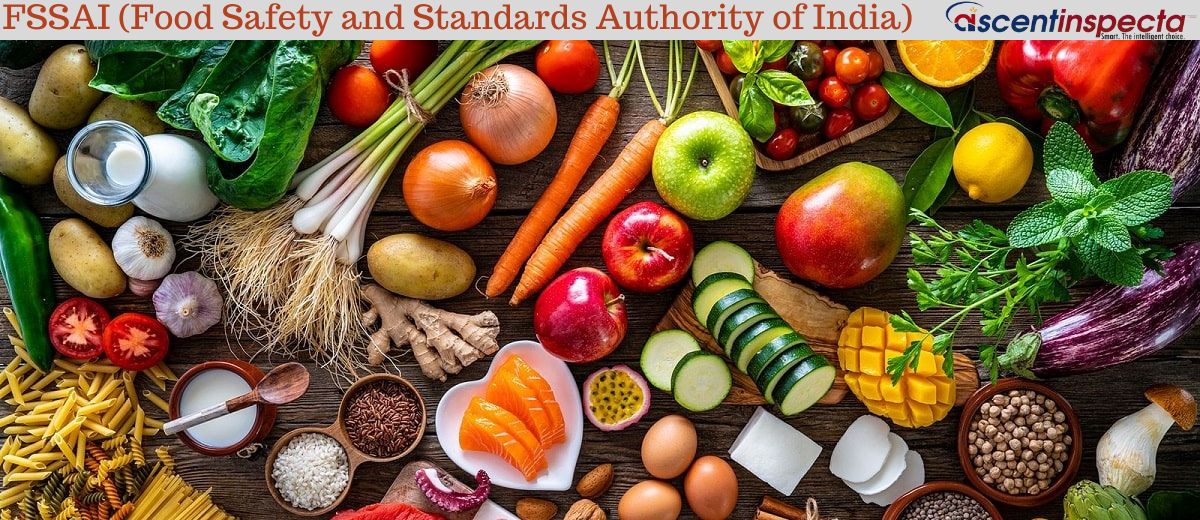The Food Safety and Standards Authority of India (FSSAI) is an autonomous body under the Ministry of Health and Family Welfare, Government of India. It is responsible for regulating and supervising the safety and standards of food products in India. FSSAI certification is a mandatory requirement for businesses involved in the production, processing, storage, distribution, and sale of food products. This certification ensures that the food products meet the prescribed quality and safety standards.
Here are some key points related to FSSAI certification:
1. Types of FSSAI Certifications:
- Basic FSSAI Registration: Small businesses with an annual turnover of up to Rs. 12 lakhs need to obtain basic registration.
- State FSSAI License: Businesses with an annual turnover between Rs. 12 lakhs and Rs. 20 crores need to obtain a state-level license.
- Central FSSAI License: Businesses with an annual turnover exceeding Rs. 20 crores need to obtain a central license.

2. Benefits of FSSAI Certification:
- Enhances consumer trust and confidence in the quality and safety of food products.
- Helps businesses comply with legal requirements and avoid legal issues.
- Provides a competitive edge in the market by demonstrating adherence to quality standards.
- Encourages good manufacturing practices and quality control.
3. Application Process:
- Businesses can apply for FSSAI certification online through the FSSAI portal.
- The application requires submission of various documents, including proof of identity, address, food safety management plan, and more, depending on the type of certification.
4. Validity:
- FSSAI certifications are valid for varying durations, typically ranging from 1 to 5 years, depending on the type of certification.
5. Renewal:
- Businesses need to renew their FSSAI certifications before the expiration date to continue operating legally.
6. Penalties for Non-Compliance:
- Non-compliance with FSSAI regulations can result in penalties, fines, and even legal action, depending on the severity of the violation.
It's important to note that FSSAI regulations and procedures can change over time, so it's recommended to consult with our company experts for the most up-to-date and accurate information regarding FSSAI certification and requirements.
FSSAI License FAQ
What is FSSAI certification? ↓
FSSAI (Food Safety and Standards Authority of India) certification is a mandatory license required for businesses involved in food manufacturing, processing, storage, distribution, and sale to ensure food safety and quality compliance.
Who needs an FSSAI license? ↓
Any food business operator (FBO), including manufacturers, transporters, storage facilities, wholesalers, retailers, distributors, and restaurants, must obtain an FSSAI license or registration based on their business size and turnover.
What are the types of FSSAI licenses? ↓
There are three types of FSSAI licenses:
- FSSAI Basic Registration (For small businesses with turnover up to ₹12 lakh)
- FSSAI State License (For medium-sized businesses with turnover between ₹12 lakh to ₹20 crore)
- FSSAI Central License (For large businesses with turnover above ₹20 crore and businesses operating in multiple states)
How can I apply for an FSSAI license? ↓
You can apply for an FSSAI license online through the FoSCoS portal (https://foscos.fssai.gov.in/) by submitting the required documents and paying the applicable fees.
What documents are required for FSSAI certification? ↓
The required documents include:
- Business registration proof (GST, PAN, incorporation certificate)
- Identity proof of the proprietor/director
- Address proof of the business premises
- Food safety management plan
- List of food products to be manufactured/sold
- Water testing report (for manufacturing units)
- NOC from the municipality or local authority
What is the validity of an FSSAI license? ↓
The FSSAI license is valid for 1 to 5 years, depending on the duration chosen at the time of application. It must be renewed before expiration to avoid penalties.
What happens if a food business operates without an FSSAI license? ↓
Operating without an FSSAI license is illegal and can lead to penalties, including fines up to ₹5 lakhs and imprisonment under the Food Safety and Standards Act, 2006.
How long does it take to get an FSSAI license? ↓
The processing time varies:
- Basic Registration – 7 to 10 days
- State License – 15 to 30 days
- Central License – 25 to 45 days
Can FSSAI registration be transferred in case of ownership change? ↓
No, FSSAI licenses are non-transferable. In case of a change in ownership, the new owner must apply for a fresh FSSAI license.
Is FSSAI certification required for homemade food businesses? ↓
Yes, even home-based food businesses (such as homemade snacks, tiffin services, or bakery items) must register with FSSAI if their turnover exceeds ₹12 lakh annually. Small-scale companies with lower turnover can apply for Basic Registration.
Get in Touch! Ask us any question/query on +91-9867-180-395. We would be happy to answer your concerns. You can also drop an email at info@ascentinspecta.com

